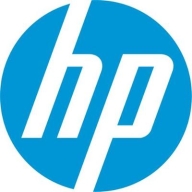

HP Wolf Security and Webroot Business Endpoint Protection are top-tier endpoint protection solutions. HP Wolf Security has the upper hand in pricing and support, while Webroot stands out for its unique features.
Features: HP Wolf Security provides robust firewall and malware protection, efficient threat detection, and endpoint management. Webroot Business Endpoint Protection offers a lightweight footprint, real-time protection, and rapid scanning. Webroot's speed and efficiency distinguish it from other solutions.
Room for Improvement: HP Wolf Security could enhance its integration with other security tools, reduce configuration complexity, and improve user interface. Webroot Business Endpoint Protection users seek better reporting capabilities, improved offline protection, and more comprehensive customer support.
Ease of Deployment and Customer Service: HP Wolf Security receives positive feedback for straightforward deployment and responsive customer service. Webroot Business Endpoint Protection is praised for easy installation, though some users find its customer support less satisfactory compared to HP Wolf.
Pricing and ROI: HP Wolf Security is cost-effective with good ROI, appreciated for its value relative to pricing. Webroot Business Endpoint Protection, slightly more expensive, is perceived as worth the investment due to advanced features. Both products offer a strong ROI but cater to different budget preferences.

HP Wolf Security is a comprehensive cybersecurity solution that bolsters your organization's cyber-resilience on multiple fronts. With its full-stack security approach, it ensures layered protection from hardware to the cloud, providing a robust defense against cyber threats. HP Wolf Security introduces endpoint isolation, a cutting-edge feature that effectively halts threats that may go unnoticed by Next-Generation Antivirus (NGAV) and Endpoint Detection and Response (EDR) systems. Moreover, it extends its security coverage to printers, equipping them with advanced detection and self-healing capabilities to further safeguard your digital ecosystem. This integrated solution streamlines IT and security risk management, resulting in fewer alerts and false positives, and reduces the time and effort required for endpoint incident analysis and remediation. Notably, HP Wolf Security prioritizes productivity, allowing you to manage risk without disrupting the user experience, enabling worry-free work from anywhere, and offering rapid IT disaster recovery at scale.
Webroot Business Endpoint Protection provides comprehensive endpoint protection, antivirus, and security features across devices like mobiles, computers, and servers to prevent malware and other threats.
Webroot Business Endpoint Protection helps businesses manage endpoint security through its robust cloud application and integrates with RMM tools for improved management and pricing. It offers EMS service, automatic updates, and a lightweight agent, ensuring ease of use and minimal resource consumption across all devices. This solution maintains a cloud-based database for real-time threat recognition and delivers strong performance with low resource usage, leveraging heuristic AI for threat detection. Companies use it for its antivirus, firewall functions, device location and wiping, and security policy applications, contributing to effective security management.
What are the key features?Webroot Business Endpoint Protection is implemented across industries to ensure robust endpoint security. Its integration with RMM tools allows for seamless management in IT environments, while its cloud-based threat detection provides essential cybersecurity for sectors such as healthcare, finance, and education.
We monitor all Endpoint Protection Platform (EPP) reviews to prevent fraudulent reviews and keep review quality high. We do not post reviews by company employees or direct competitors. We validate each review for authenticity via cross-reference with LinkedIn, and personal follow-up with the reviewer when necessary.